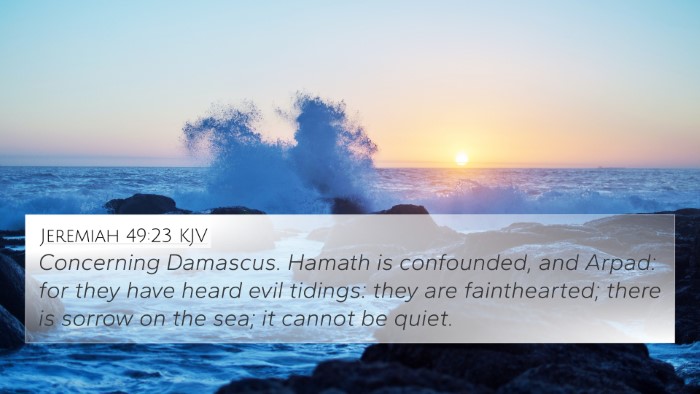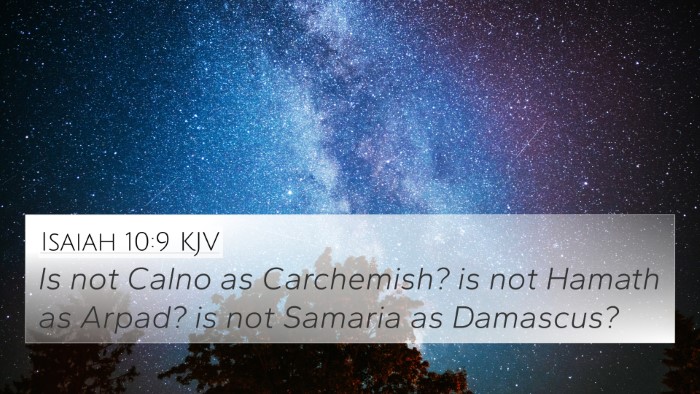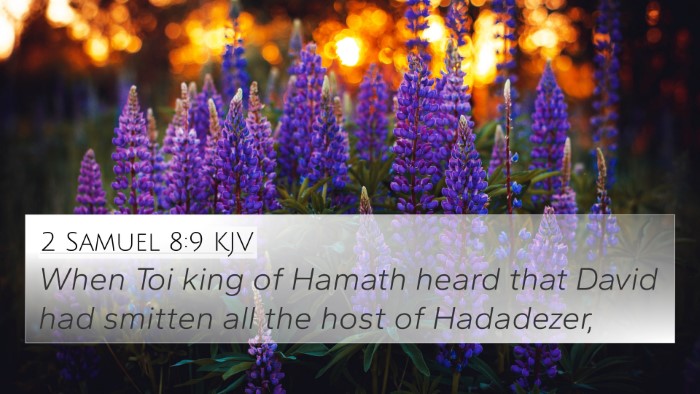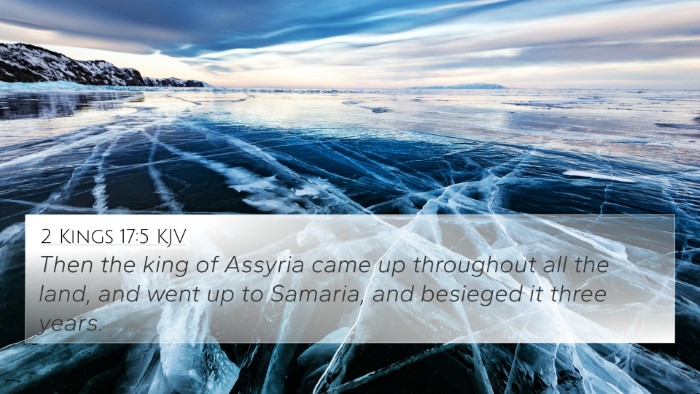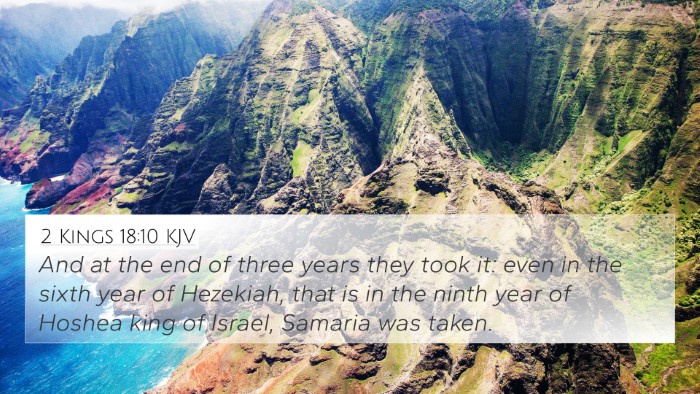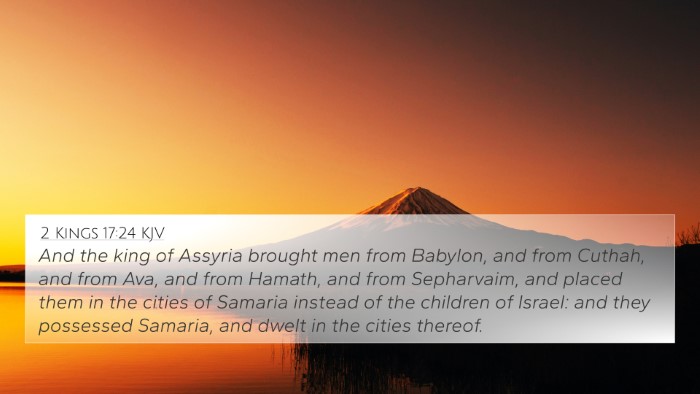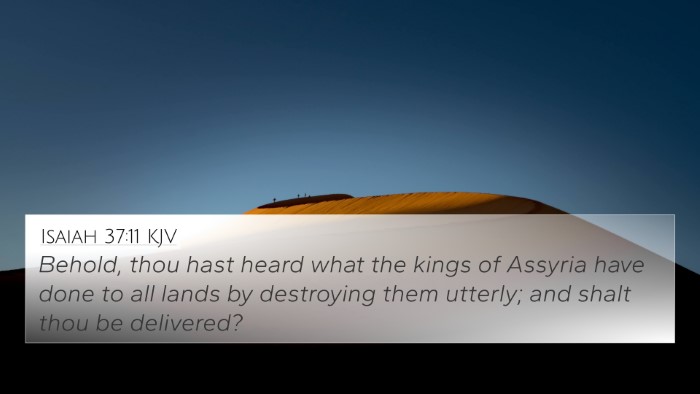Understanding Isaiah 36:19
Isaiah 36:19 (KJV): "Where are the gods of Hamath and of Arphad? where are the gods of Sepharvaim? and have they delivered Samaria out of mine hand?"
Summary of the Verse
This verse is part of a larger narrative where the Assyrian king, Sennacherib, is taunting the people of Judah through his emissary, Rabshakeh. The challenge posed aims to undermine their faith in God by comparing Him to the gods of conquered nations, questioning His ability to deliver His people.
Meaning and Context
Contextual Insights: The backdrop of this passage includes the Assyrian invasion of Judah during the reign of King Hezekiah. The Assyrians had already taken Israel captive, and their confidence was bolstered by prior victories over other nations.
Commentary Insights:
- Matthew Henry: Henry notes the audacity of the Assyrian king in mocking the true God by equating Him with the impotent idols of foreign lands. He emphasizes that this disbelief in God's power and providence is a common theme among those who oppose His chosen people.
- Albert Barnes: Barnes underscores that Sennacherib's question signifies the pride and ignorance of powerful nations that fail to recognize the sovereignty of God over all nations. He highlights that God’s involvement in the affairs of His people is unique and unmatched.
- Adam Clarke: Clarke elaborates on the significance of calling out specific places (Hamath, Arphad, Sepharvaim) as representations of the defeated deities of those nations, pointing out that the defeat of their gods demonstrates the superiority of the God of Israel.
Thematic Connections
This verse can be thematically connected to several scriptural truths regarding faith, sovereignty, and divine deliverance. Through the lens of faith amidst adversity, believers are reminded of the formidable power and authority of God, who is able to save even when the odds seem insurmountable.
Cross-References to Isaiah 36:19
- Isaiah 37:10-12: This response shows God's pride against those who question His power.
- 2 Kings 18:33-35: Echoes the same doubts about God's ability to save.
- Psalm 20:7: A prayerful reminder that some trust in chariots and horses, but we trust in the name of the Lord our God.
- Isaiah 43:12: God declares that He alone is Savior.
- Isaiah 46:5: God questions who can be like Him, underscoring His uniqueness.
- Jeremiah 10:11: Contrasts the living God with the idols made by human hands.
- Acts 4:12: The New Testament affirmation that salvation is found in no one else but Jesus, the God of Israel.
Applications for Today
Isaiah 36:19 serves as a stark reminder to modern believers about the importance of faith in the face of doubt and adversity. As one contemplates the situation faced by Hezekiah and the people of Judah, it encourages a reflection on where one's trust lies in contemporary struggles.
Conclusion
By exploring Isaiah 36:19 with cross-references and thematic connections, readers discover profound insights that bolster their faith. The study serves as an invitation to engage with Scripture actively, providing clarity and depth to the understanding of God's timeless protection and power.
Tools for Bible Cross-Referencing
Utilizing a Bible concordance, a Bible cross-reference guide, or cross-reference Bible study methods can enhance one's understanding of connections between Bible verses. Identifying these connections not only enriches personal study but also prepares the believer for effective teaching and discipleship.



